TIKRIT, Iraq - "The Spartans are the equal of any men when they fight as individuals, but when fighting together as a collective, they surpass all other men." This was uttered to a Persian king more than twenty five hundred years ago on the verge of one of the greatest last stand battles in history.
Today, Spartans of another kind find themselves making another great stand along with their Iraqi partners to secure the people of Tikrit, Iraq.
The 1st Special Troops Battalion "Spartans" of the 1st Brigade Combat Team, 101st Airborne Division, like the Greek warriors of antiquity, are making military history by being the first Special Troops Battalion to control a significant amount of battlespace in the Iraq theatre of operations.
"To my knowledge, the 1st STB, 1st BCT is the first to pickup battlespace as a maneuver element," said Lt. Col. Rick Rhyne, 1st STB commander.
Typically, STBs function in more of a support capacity by bringing a diverse array of warfighting enablers to the brigade. By combining signal, intelligence, engineer, chemical, military police, and other specialized maneuver support units under one battlion, the STB acts as a combat force multiplier for the brigade.
However, since arriving in Iraq, the 1st STB has taken on the additional role of managing battlespace in and around the Tikrit area by conducting missions usually reserved to infantry battalions.
"It does present difficulties, in that a normal Special Troop Battalion is not formulated to do these types of operations," said Rhyne. "In positions where you would have a captain, I have a lieutenant, where you have a major, I have a captain," he said.
The Soldiers of the STB, however, have come to realize that the whole is greater than the sum of its parts.
"Everyone has had to step up and learn new roles for us to succeed here," said Capt. John Gabriel, the battalion's Operations Officer. "It has been a challenge, but we had the right people in the right place at the right time," he said.
Adapting his organization to new challenges is nothing new to Rhyne, a career Special Forces officer who has been operating in the Middle East since 1993.
"I've been very impressed with all of our Soldiers in the 1st STB because they have stood up to a very difficult job," said Rhyne. "Any counter-insurgency operation is difficult, it doesn't matter what your military occupational specialty is."
Rhyne said that the crux of the STB's mission here, lies in securing, interacting and developing a relationship with the people of the Tikrit area.
"The local populace is key to the counter insurgency fight here," said Rhyne. "The center of gravity is the people. When we get out of our vehicles we become an individual and it makes them become more personal with us," he said.
Rhyne, who often walks the streets of Tikrit to gain the trust of the people, said that the best advice he gives to his Soldiers is to understand that the risk of being out amongst the people is a necessary and fundamental part of weeding out the insurgents here.
"By building strong ties to the local community and to the Iraqi Security Forces, 1st STB Soldiers have helped drive a wedge between the insurgency and the local populace, which is forcing the terrorists to flee to remote areas of the province," said Gabriel.
"We feel safer when the locals know us and trust us. That's our safety," said Gabriel who credits the decrease in violence in the area to cooperation between Iraqi Security Forces, the Son's of Iraq movement and Coalition Forces. "Once the people feel secure in the city, they start to push the enemy out into the desert where it's much easier for us to kill them," he said.
On Feb. 23, STB Soldiers assisted Iraqi Policemen on Operation Desert Harvest, which was planned and led by Iraqi Security Forces, to clear a desolate area near Lake Thar Thar from insurgents who had taken over a fishing village.
There, Iraqi Security Forces with help from STB Soldiers, killed several Al Qaeda insurgents and found a large supply of homemade explosives which was hidden nearby.
"They developed their own intelligence and their own plan here, which shows how much they have matured," said Gabriel. "When I was here two years ago, the Iraqis didn't have the capacity to conduct a full scale attack and go home with no casualties like they did here," he said.
"We're heading in the right direction, there's no question about that," said Rhyne. "What I tell my Soldiers is, that the kids that are about four-feet high, when they're our size, that's when you're going to see change, that's when your going to see a better place."
-30-
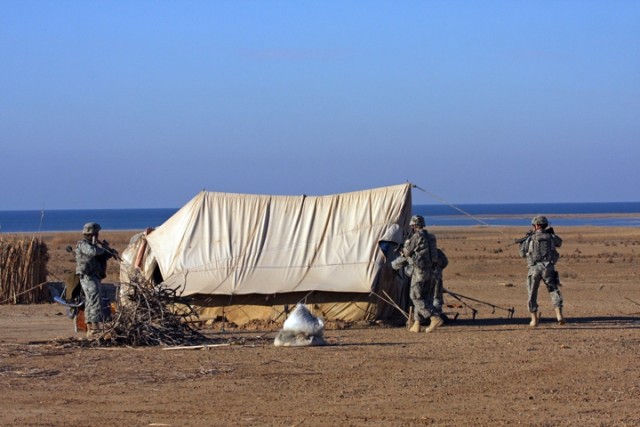
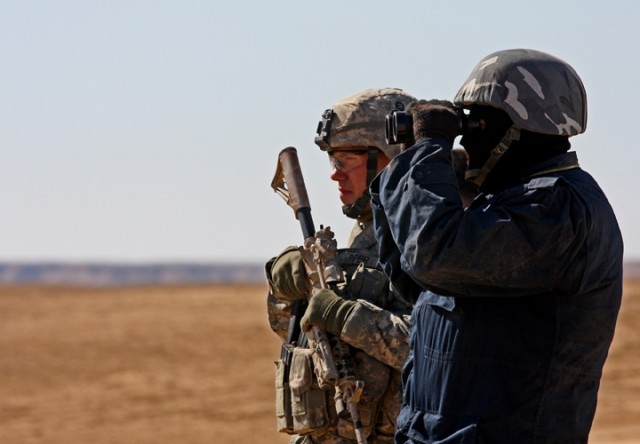
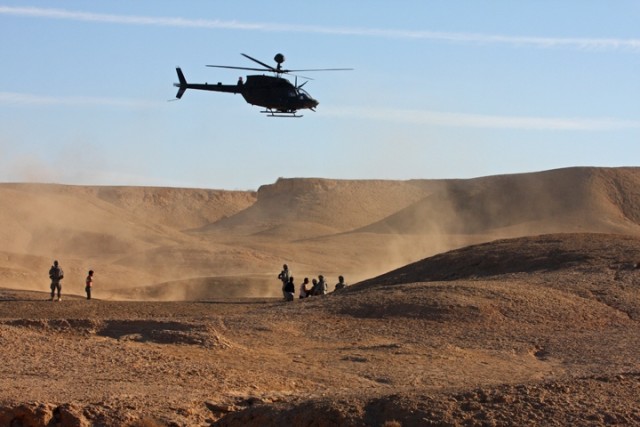
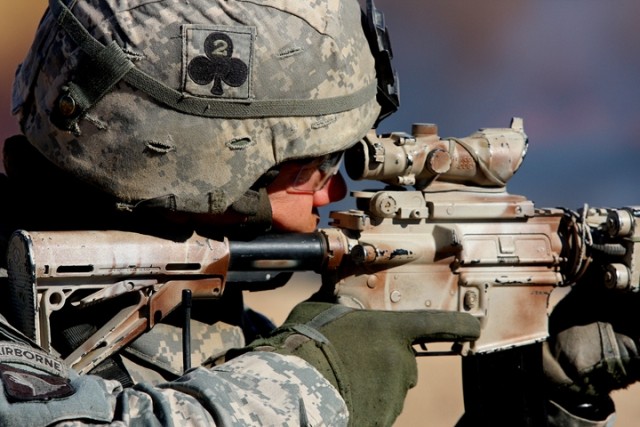
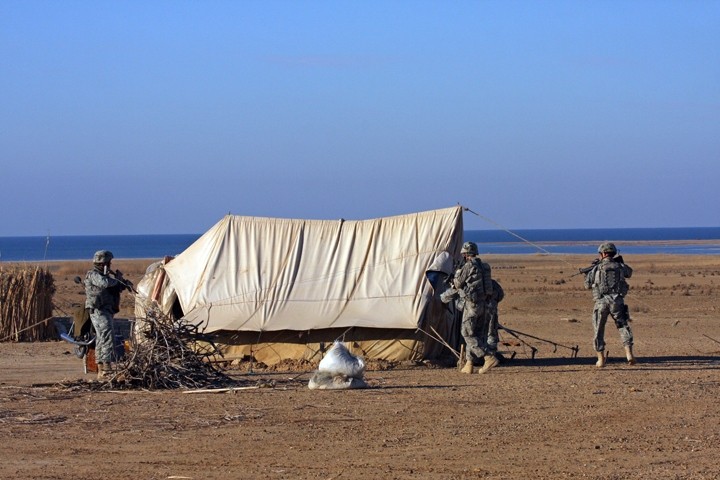
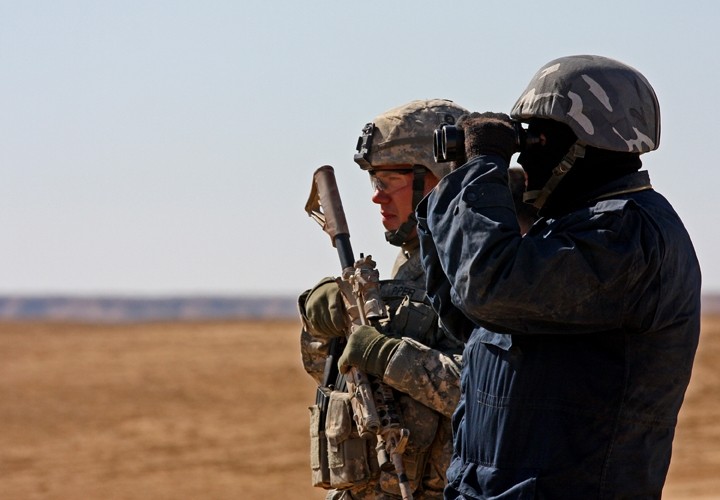

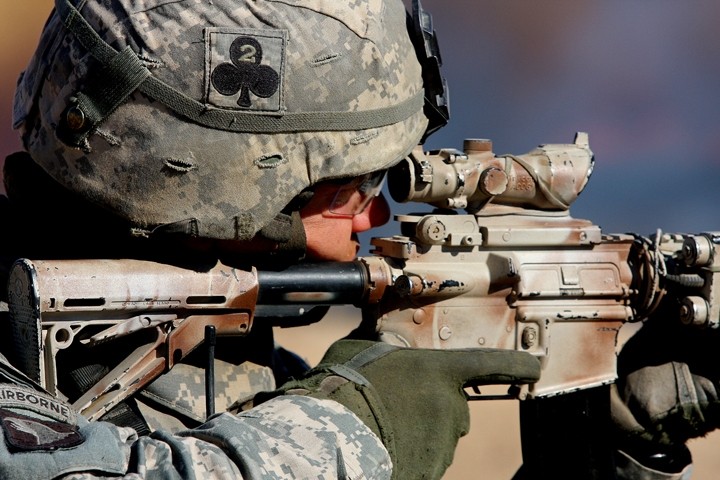
Social Sharing